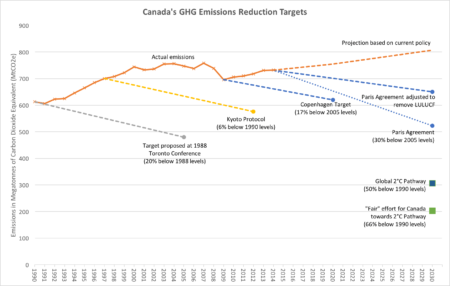The Trudeau government’s latest climate change announcement is a plan to cut emissions by 40% by 2030.
The plan also aims to cut oil and gas sector emissions from 191 megatonnes to 110 megatonnes, though the government says it won’t reduce production “not driven by declines in global demand.”
Whether out of political calculation, the influence of the industry, or a simple lack of understanding, this announcement perpetuates the idea that “emissions” can be cut in a meaningful and sustainable way while continuing to expand fossil fuel production. This conforms with earlier analysis of how Trudeau promises action to the public while at the same time comforting business with promises that not much will change.
As long as Canadian politicians are too afraid to acknowledge that avoiding catastrophic climate change requires abolishing fossil fuels we will keep getting plans predicated on the nonsense that we can solve the problem without addressing its chemical causes. It’s fair enough at this point to attribute some of the blame to Canadian voters, who keep proving by their electoral choices that they want the government to express concern about climate change while not even meaningfully slowing down the pace at which we’re making it worse.
It also doesn’t help that the plan’s title sounds exactly like something the Harper government would have created. Climate change isn’t an issue of how “clean” the air is, and setting up clean air beside “strong economy” sticks to the narrative that good policy is about trading one against the other. That’s at best a distorted way of thinking about a fossil fuel dependency which threatens to undermine the very basis of human civilization. For people used to playing for only political stakes, gambling with the future of the whole species is outside of their training and conventional mindsets.

